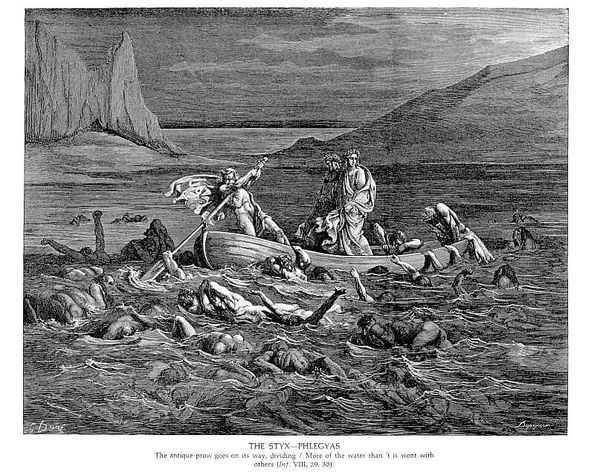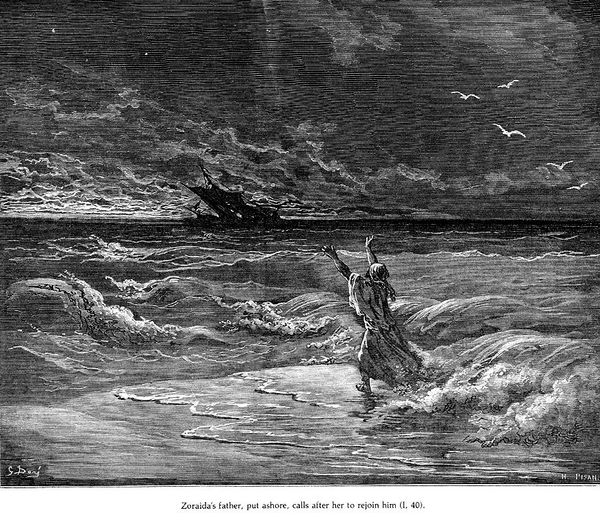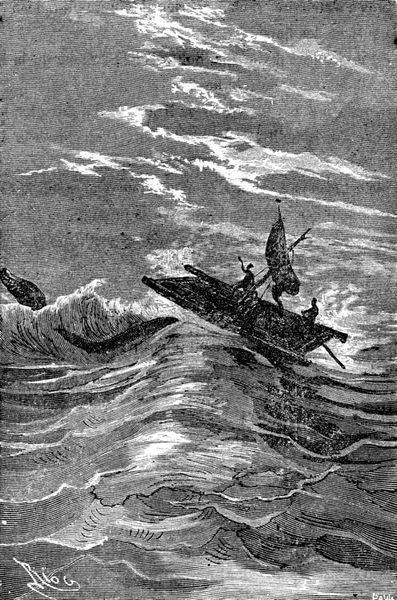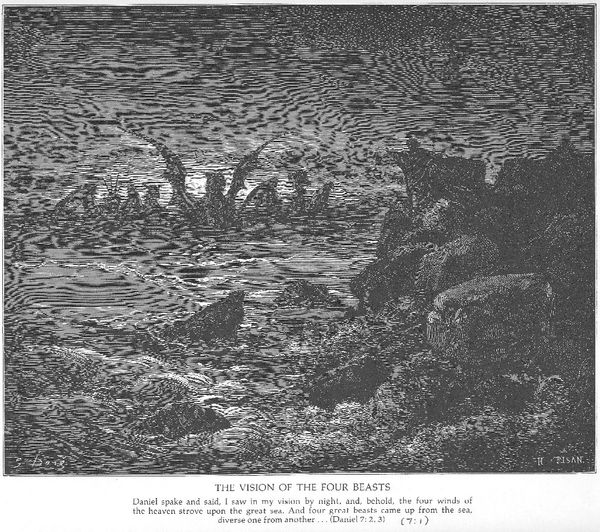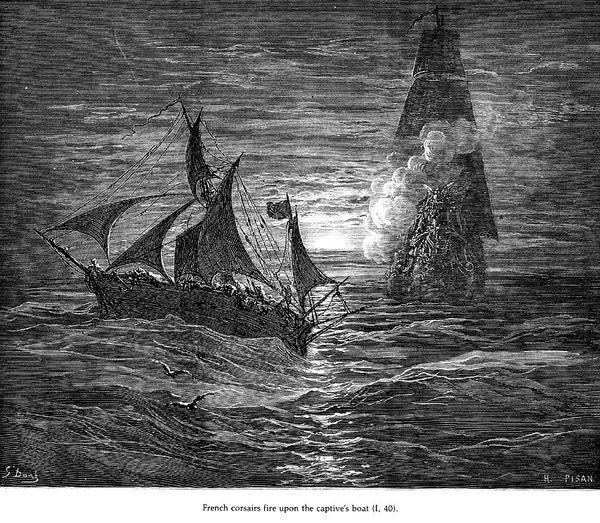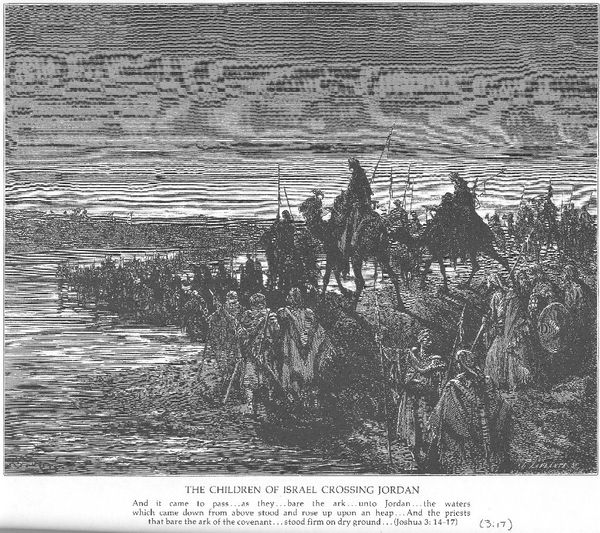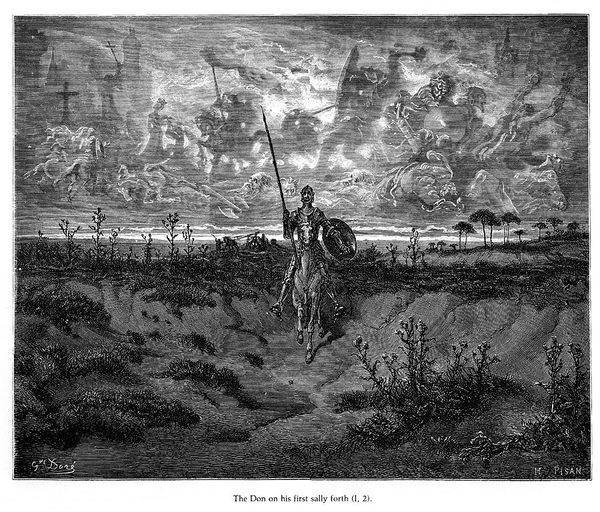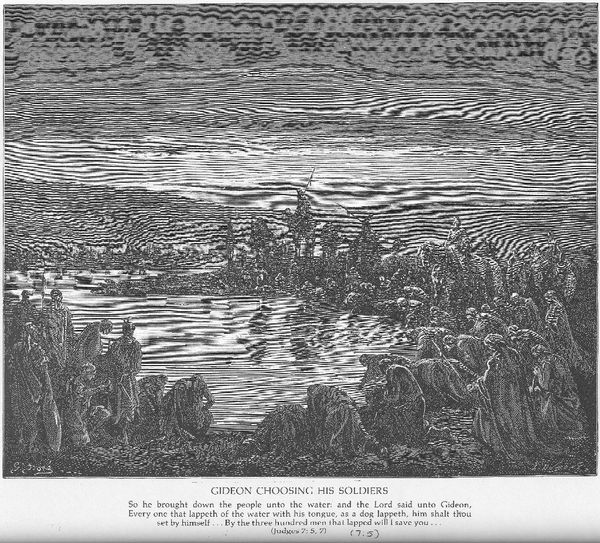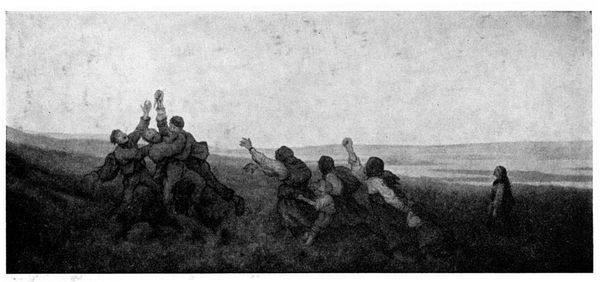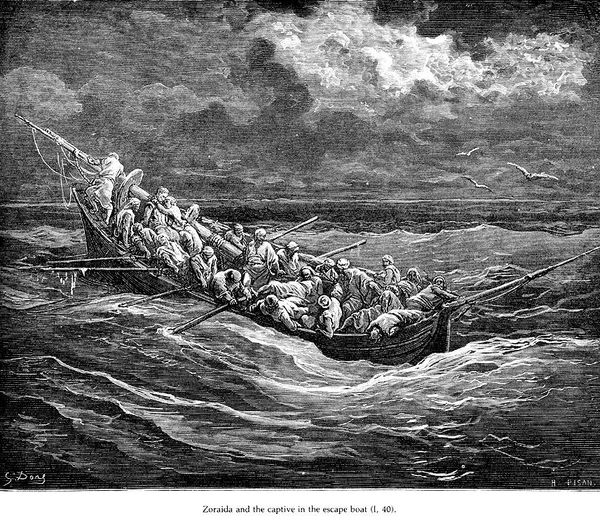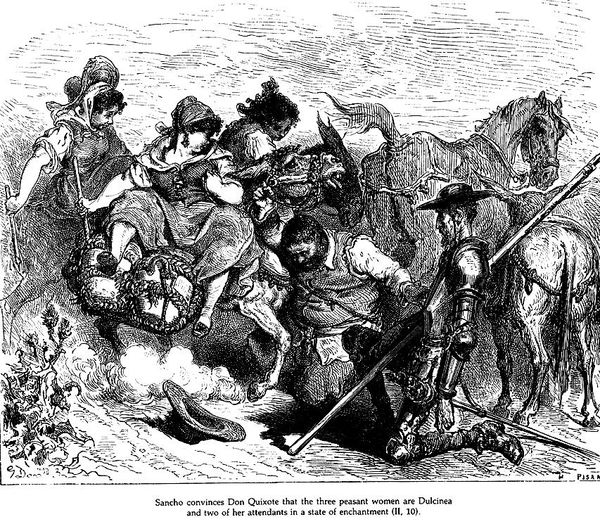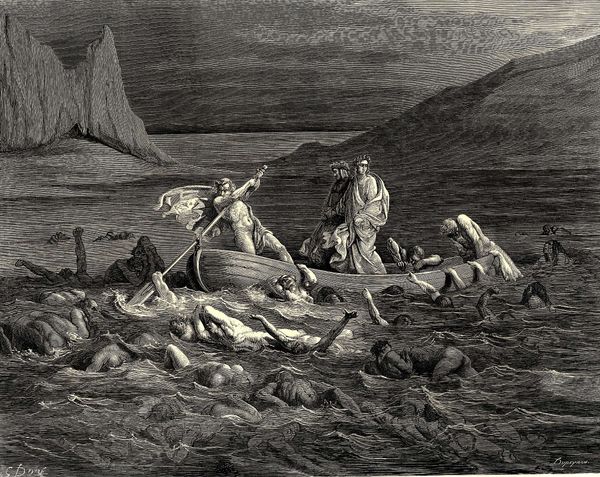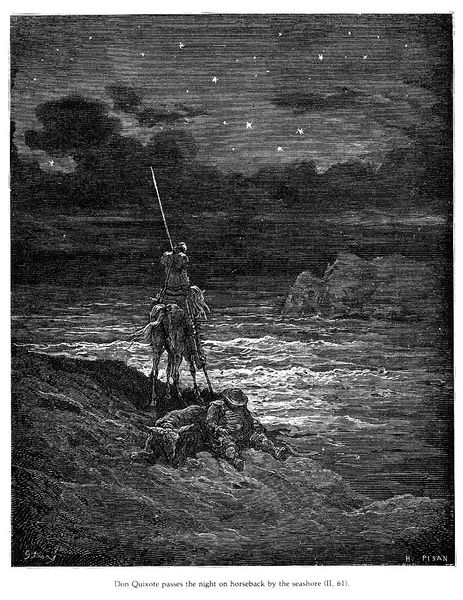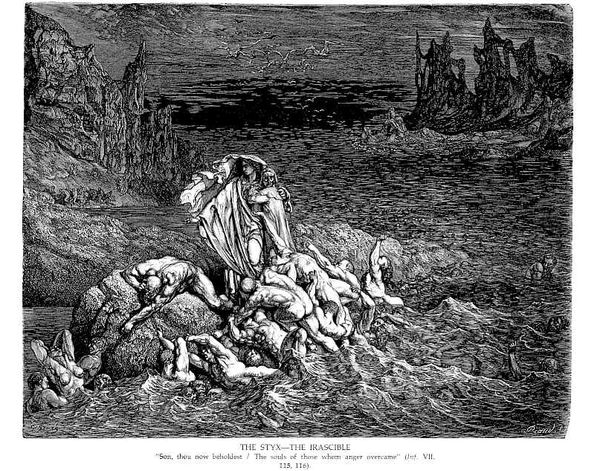
drawing, print, engraving
#
drawing
#
narrative-art
# print
#
landscape
#
figuration
#
romanticism
#
horse
#
line
#
history-painting
#
charcoal
#
engraving
Copyright: Public domain
Editor: This drawing, "Don Quixote" by Gustave Dore, is an engraving – maybe even a print based on one. The desolate scene on the beach... you can almost feel the grit of the sand and hear the waves crashing. The line work is incredible, so precise. What strikes you about it? Curator: The technical skill involved in creating this image as a reproducible print is undeniable. It forces us to consider how readily available imagery shapes our understanding of narratives. Were prints like these accessible to a wide audience? How did the process of creating this image, from the initial drawing to the engraving and printing, impact its meaning and reception? Editor: That's interesting, the process of its creation impacting the reception. So, are you saying that mass production changes art itself? Curator: Absolutely! Think about the labor involved in each step, from the artist to the engravers, the printers. This wasn't a solitary act of genius, but a collaborative effort, a whole production chain. How does this industrialization of art affect its value? Editor: I see what you mean! It challenges this romantic notion of the singular artist, right? Making it more about collective labor and, I guess, accessibility. Curator: Exactly. We're not just looking at an illustration; we're looking at the social and economic forces that made its circulation possible. Consider how this mass distribution further ingrained Dore's imagery and narrative within the collective consciousness of the era. It reveals not just artistic skill but also societal impact via mass communication, accessible production. Editor: I had only been focused on the scene, but you've got me considering its broader role in disseminating art! I will definitely rethink the way I understand art in social contexts.
Comments
No comments
Be the first to comment and join the conversation on the ultimate creative platform.
